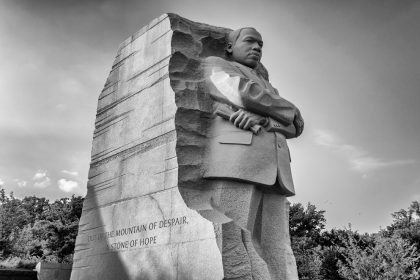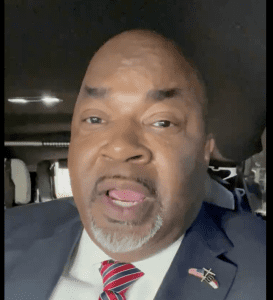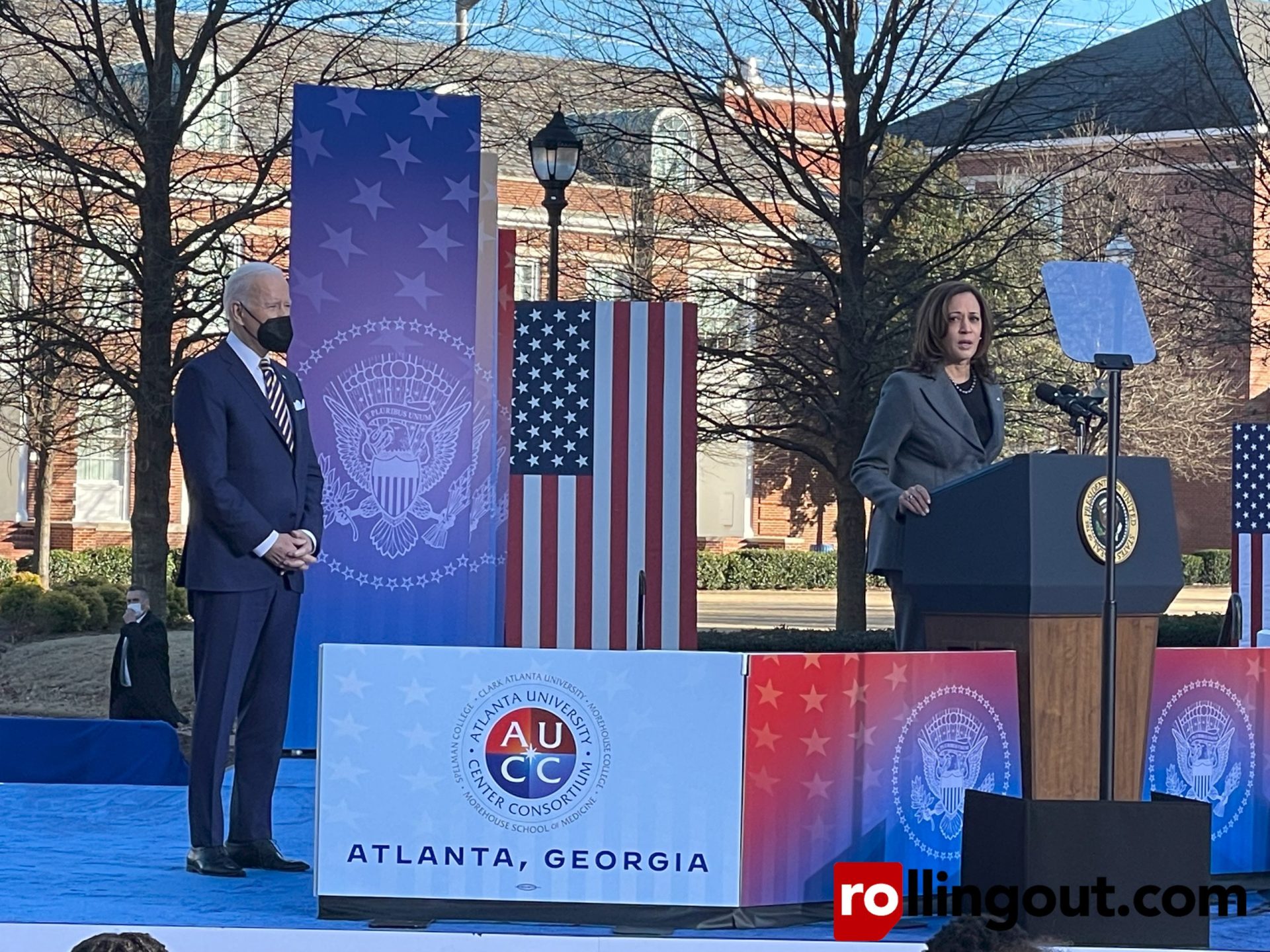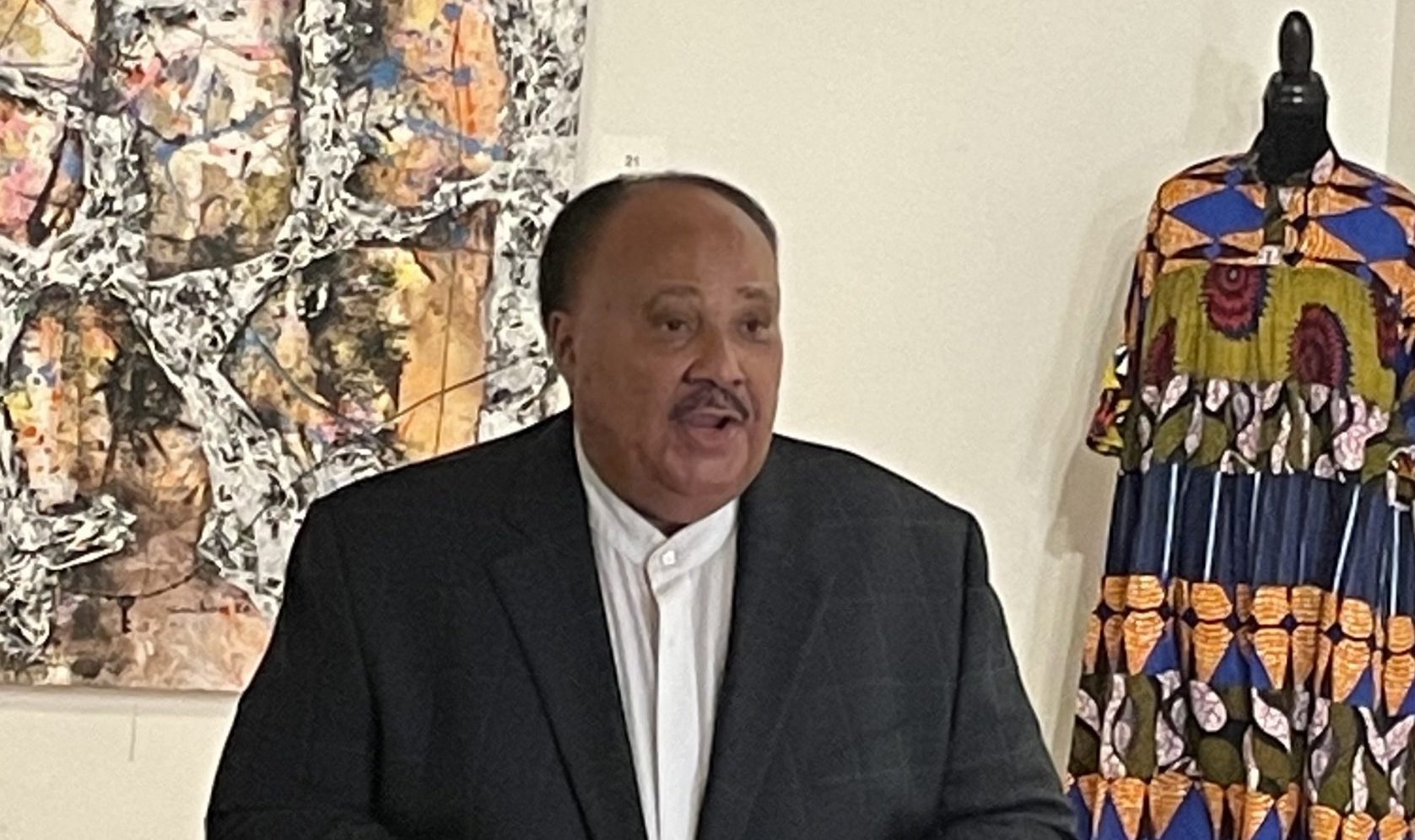 Nathan McCall had long ago joined the ranks of very prominent black intellectuals, educators, legislators and civic leaders who are utterly repulsed by the unbridled and unprincipled “Santa-Claus-ification” of Martin Luther King Jr.
Nathan McCall had long ago joined the ranks of very prominent black intellectuals, educators, legislators and civic leaders who are utterly repulsed by the unbridled and unprincipled “Santa-Claus-ification” of Martin Luther King Jr.
Other than the iconic and almost melodious “I Have a Dream” speech that electrified the masses and reinvigorated the Movement, McCall wants people to know that many of his speeches were not of the Sunday school picnic variety.
Beneath the disarming facial features and impeccable designer suits raged an angry black revolutionary who was fearless about putting America on blast for its hypocrisy, atrocities and crimes against humanity. Which is why McCall, a senior lecturer at Emory University, titled one of his papers “Martin Luther King Was An Angry Black Man.”
The topic of discussion is timely as the nation celebrates the 50th anniversary of the passage of the monumental Civil Rights Bill of 1964, replete with a series of events last week at the Lyndon B. Johnson Library in Austin, Texas, that was attended by the likes of former Presidents Jimmy Carter, Bill Clinton and, of course, MLK’s cultural successor, President Obama.
McCall asserts that, for a man who is frequently the topic of discussions, particularly as it pertains to race, so few people know who Dr. King really was.
“Well it’s amazing to me, any group of young people if you ask them what MLK stood for, they’ll refer to the ‘I Have a Dream Speech’, the feel-good speech,” says McCall, who knows a little about growing up angry as the author of the classic New York Times best-seller Makes Me Wanna Holler. “But if you look at the range of Dr. King’s speeches, he had some speeches that were seriously radical.
“He has a feel-good image, [he was] someone who preached love, but who was not about confrontation, but he was very confrontational.”
Some of MLK’s speeches and writings were so radical, in fact, that King is virtually unrecognizable from the carefully crafted mainstream image of him.
“In fact, I do an experiment with my students sometimes. I give them one of Martin Luther King’s angry speeches, but I don’t tell them who delivered the speech,” McCall says, almost with a smile in his voice. “They think it’s Malcolm X.”
That’s the double-edged sword of the legendary “I Have a Dream” speech in that it overshadows some of his other very important writings and speeches that defined those times with uncanny brilliance, McCall says. “If you look at his speech on Vietnam, his ‘Letter from a Birmingham Jail,’ so many of his speech and writings, he takes America head-on. He is very, very critical of America and its unfettered capitalism. He was about challenging the status quo on the deepest levels.”
And when McCall refers to “the deepest levels” he is talking about the thing that separates America from the rest of the world: capitalism.
“At this day and time, you have conservatives running around calling Obama a socialist. But he never said anything on socialism. But King did. King talked about socialism. He wondered if that would be a better system than the capitalism that we have today.”
McCall, a former Washington Post reporter and author of the award-winning novel, Them, said that MLK was imbued with a righteous anger that fueled his work on human rights.
“He was an angry black man, very much so. Sometimes we simplify that phrase, ‘angry black man.’ ” he said. “King was angry, but the good thing is that he knew how to channel his anger; he channeled his anger into confronting the injustices that he saw. I think that If he were alive today, he would be taking on Obama on a number of issues, you know? … [The issue of] strikes, attention to the poor, that sort of thing.”
McCall is most impressed by King’s uncommon valor in the face of frightening levels of hate and violence against the movement.
“That brother, man, he was devoted to the end. I find it fascinating that he kept pushing the limits, that he kept pushing the envelope. And he had to know that it would get him killed in this country,” McCall said. “He was messing with people’s money. Defense contractors were making a grip off the Vietnam War. King was not only condemning [the Vietnam War], but one time he said that ‘America is the greatest purveyor of violence on the face of this Earth.’ ”
“At that point, that was probably the speech that got him killed,” McCall added.
And it is one of the many powerful and history-defining speeches that have been long overlooked and forgotten in the interim 46 years since King’s life was cut short this month in Memphis, Tenn. Perhaps, as the nation pauses to commemorate the 50th anniversary of the passage of the Civil Rights Act of 1964, people will also take more than a cursory glance back at this most complex and brilliant man named Martin Luther King Jr.
Hopefully, more will find out who he truly was and what he really stood for.
















